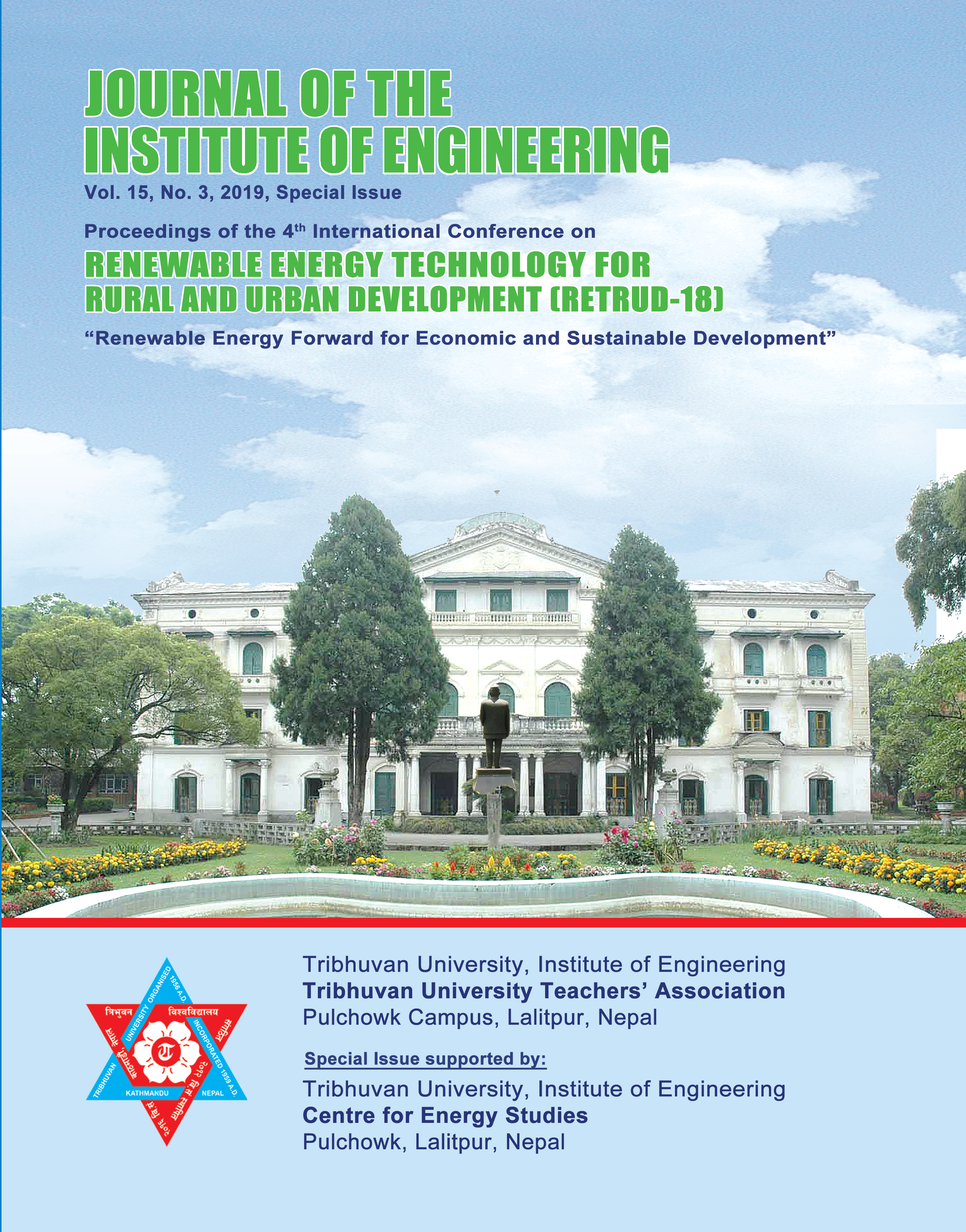Municipal Solid Waste Management in Nepal: Opportunities and Challenges
DOI:
https://doi.org/10.3126/jie.v15i3.32185Keywords:
Solid Waste Management, Bioenergy, Waste Volume and Composition, Organic WasteAbstract
Solid waste management at municipalities of Nepal is one of the major issues that require a sustainable solution. The preliminary survey and review suggested that waste management practices including collection, transport and resource recovery in most of the municipalities are ineffective and almost all collected waste finally disposed to the dumping site. Taking baseline data from solid waste management in Nepal report of Asian Development Bank 2013, estimated waste projection of 2017 has been made. The projected data shows waste generation in municipalities of Nepal is about 3023 tons per day and the average per capita waste generation is 0.223 kg/person/day. On average the composition of waste is primarily decomposable about 60% and about 25% is recyclables such as plastics, papers and metals. With the help of Multi Criteria Decision Matrix (MCDM), this paper suggests that the suitable methods of waste management for Nepalese municipalities are waste to bio-energy and fertilizer production. It further proposed and discussed a holistic model of waste management for municipalities and an appropriate waste to bio-energy technology in context of Nepal.
Downloads
Downloads
Published
How to Cite
Issue
Section
License
The Copyright is held by Journal of the Institute of Engineering, IOE, TU




